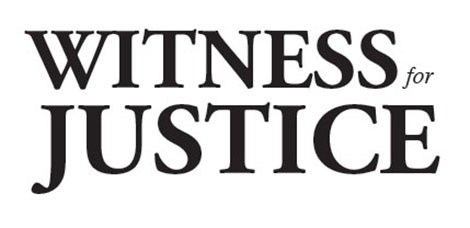Commentary: Our Displaced Neighbors
 It has been so sad to watch the destruction Hurricanes Harvey and Irma have wreaked on Houston, coastal Texas, the Gulf coast, and the islands of the Caribbean. They are tragedies of immense proportions which remind us of the devastation of hurricanes Katrina and Rita in New Orleans, the Gulf, and the Caribbean in 2005; and Sandy in New York and New Jersey in 2012. In each case, as the flood waters recede, the extent of the damage is revealed. Even before that, news commentators and politicians begin talking about recovery and reconstruction plans, and a timeline for people to return home. We pray for all those affected. Having relatives that were displaced by Katrina, but who were never able to move home again, I have a personal sense of the impact such disasters have on peoples’ lives for the long term—beyond the immediate event and evacuation.
It has been so sad to watch the destruction Hurricanes Harvey and Irma have wreaked on Houston, coastal Texas, the Gulf coast, and the islands of the Caribbean. They are tragedies of immense proportions which remind us of the devastation of hurricanes Katrina and Rita in New Orleans, the Gulf, and the Caribbean in 2005; and Sandy in New York and New Jersey in 2012. In each case, as the flood waters recede, the extent of the damage is revealed. Even before that, news commentators and politicians begin talking about recovery and reconstruction plans, and a timeline for people to return home. We pray for all those affected. Having relatives that were displaced by Katrina, but who were never able to move home again, I have a personal sense of the impact such disasters have on peoples’ lives for the long term—beyond the immediate event and evacuation.
While Hurricane Harvey was in our news, monsoons in India, Bangladesh, and Nepal have left more than 1,000 people dead, displaced millions, and impacted tens of millions of people in Southern Asia. Island nations in the Pacific Ocean are readying themselves for rising sea levels due to climate change, which will force them to leave their homes—and their countries—forever, when their lands disappear underwater. So many people are being displaced by natural and human causes. We are right to support their immediate needs and their longer-term efforts to get back on their feet. It would be appropriate to consider all of these displaced people refugees of sorts, as they are fleeing from a condition of hardship to seek safety and a place to pursue their dreams and aspirations.
There are other reasons people are displaced, though, including climate change and economic refugees—people who leave settings of impoverishment to build a feasible and more comfortable life. The United Nations High Commission for Refugees, however, reports that most of the world’s more than 65 million refugees (half of whom are children, the most vulnerable), have been uprooted from their homes by conflict and persecution. All of these, too, deserve our compassion and encouragement.
More than 40 million of those 65 million are displaced within their own countries. The highest numbers of forcibly displaced people in recorded human history. Almost five of every six refugees are now located in developing or middle-income countries, and nearly a third are hosted by the least-developed countries in the world. Most refugees cannot think of returning home even in decades, and many never will.
The two largest refugee communities are Syrians (more than 5.5 million people outside their country, and more than 6 million displaced inside Syria, since 2011) and Palestinians (more than 5 million people, displaced since 1948 and 1967—generations).
A recent headline in the British newspaper The Guardian suggested that the world is losing interest in Syria. The conflict there is now 6½ years old, and has expanded politically both regionally and globally. Politics aside, more than half of the country’s people are displaced, needing humanitarian assistance. More than half! Having visited Syrian and Palestinian refugees in their diaspora, I know that they do not have much optimism in their immediate prospects, but they maintain hope for their futures, and those of their families. However, they require us to remember them and their rights as human beings, not to lose interest, and to continue to advocate for fair, just, and compassionate treatment, exhibiting love for each of our neighbors—locally and globally—particularly those displaced by storms, natural disasters, economic injustice, conflict and war.
Peter Makari is Team Leader and Area Executive for Middle East and Europe of the United Church of Christ.
View this and other columns on the UCC’s Witness for Justice page.
Donate to support Witness for Justice through the Neighbors in Need offering.
Click here to download the bulletin insert.
Related News
Overworked, Overwhelmed, and Underpaid
It is overwhelming to be a human right now, and especially, a policy advocate with moral...
Read More“I am thirsty”
Last March, when a child who was stuck under the rubble of a collapsed building in Gaza saw...
Read MoreSpringing Forward
Spring is in bloom in my neighborhood. Trees are budding. Flowers are starting to blossom. The...
Read More

